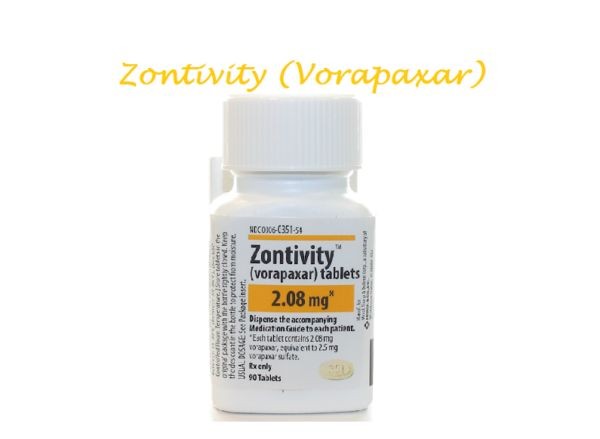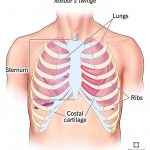
Contents
vorapaxar
Vorapaxar is used to reduce the risk of blood clot formation in adult patients with a history of heart attack or peripheral artery disease. It reduces the rate of cardiovascular death, heart attack, stroke, and the need for emergency coronary artery bypass grafting. Vorapaxar is usually administered with other anticoagulants like acetylsalicylic acid and/or clopidogrel.
When a blood vessel is injured, platelets aggregate to form a plug and stop bleeding. Vorapaxar inhibits this aggregation and helps prevent clot formation. It belongs to a class of drugs called protease activated receptor-1 inhibitors. Vorapaxar binds to platelets and stops their aggregation induced by thrombin and thrombin receptor agonist peptide.
There are some warnings associated with vorapaxar. It should not be used in patients with a history of stroke, transient ischemic attack, or intracranial hemorrhage as it increases the risk of fatal bleeding. Vorapaxar should also not be used in patients with pathological bleeding like intracranial hemorrhage or peptic ulcers. The risk of bleeding should be considered before prescribing vorapaxar, especially in patients with advanced age, low body weight, history of bleeding disorders, impaired liver or kidney function, or use of certain medications.
IMAGES
What are the side effects of vorapaxar?
Common side effects of vorapaxar include bleeding events like gastrointestinal bleeding and intracranial hemorrhage, as well as rashes and eruptions.
If you experience serious side effects such as fast or pounding heartbeats, severe headache, confusion, severe weakness, severe nervous system reaction, or serious eye symptoms, seek medical help immediately.
This is not a complete list of all side effects. Contact your doctor if you have any questions or concerns.
What are the dosages of vorapaxar?
Tablet
Adult:
Thromboembolism:
Take 2.08 mg orally once daily in combination with aspirin and/or clopidogrel.
Dosage Modifications:
No dose adjustment required for renal or mild-to-moderate hepatic impairment. Not recommended for severe hepatic impairment.
Dosing Considerations:
Vorapaxar reduces the rate of cardiovascular death, heart attack, stroke, and urgent coronary revascularization.
Administration:
May be taken with or without food.
Pediatric:
Safety and accuracy not established.
Overdose:
Overdose can increase the risk of bleeding. There is no known treatment to reverse the effect of vorapaxar.
What drugs interact with vorapaxar?
Inform your doctor of all medications you are currently taking to check for possible drug interactions. Do not start, stop, or change the dosage of any medication without your doctor’s recommendation.
Some severe interactions of vorapaxar include abrocitinib, apixaban, defibrotide, and rivaroxaban.
It is important to always tell your doctor, pharmacist, or healthcare provider about all prescription and over-the-counter medications you use.
Pregnancy and breastfeeding
Vorapaxar may not cause harm during pregnancy, but there is insufficient data to determine its safety. If you become pregnant, discontinue vorapaxar and initiate alternate treatment.
The presence of vorapaxar or its metabolites in breastmilk is unknown. Nursing mothers should avoid breastfeeding while on treatment with vorapaxar.
What else should I know about vorapaxar?
Take vorapaxar as prescribed and do not discontinue without consulting your doctor. Be cautious to avoid injury as vorapaxar can cause bleeding and bruising. Inform other healthcare providers about your use of vorapaxar before any surgical or dental procedure. Keep vorapaxar out of reach of children. In case of overdose, seek medical help.
By clicking "Submit," you agree to the MedicineNet Terms and Conditions and Privacy Policy. You also agree to receive emails from MedicineNet and understand that you may opt out of subscriptions at any time.
Summary
Vorapaxar is used to reduce the risk of blood clot formation in adult patients with a history of heart attack or peripheral artery disease. Common side effects include bleeding events, anemia, depression, skin reactions, and diplopia.


